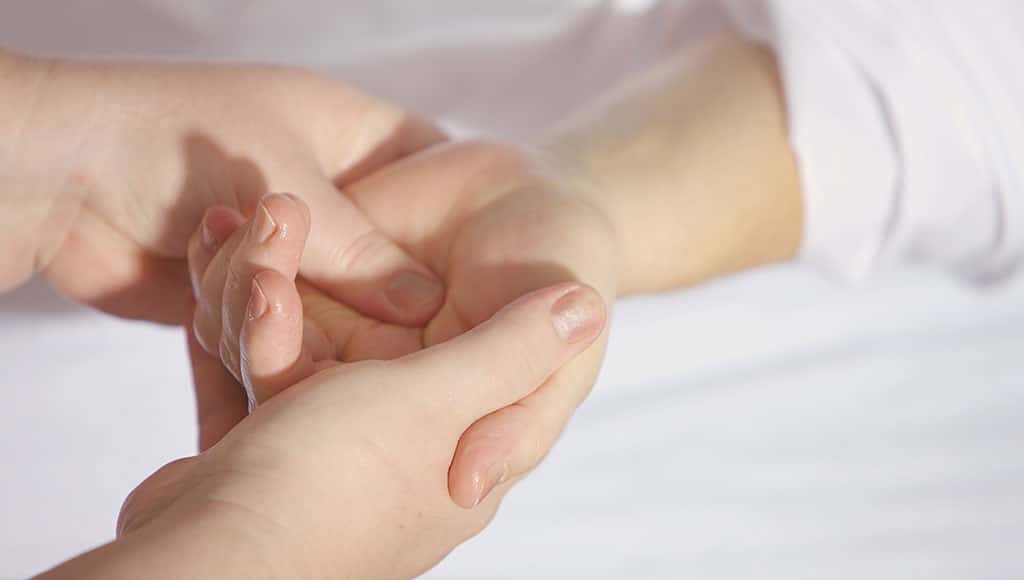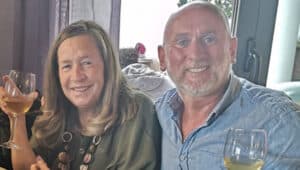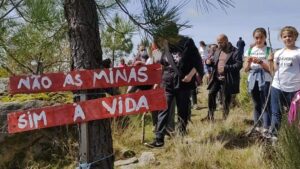“That’s a great idea,” some have responded, only to add: “I don’t want to talk about it!”
And I get it. Death, dying, and more broadly, all the considerations one might face (and deal with) when considering the rest of one’s life in Portugal, or anywhere on this blessed earth, might not be everyone’s ‘cup of tea’.
Strangely, we know however – at some level – we are all going to die. There’s no secret about that, but you could say there is something of a conspiracy around it, a neurosis perhaps, that keeps the undeniable truth out of the public square and beyond the bounds of superficial, daily conversation.
We could spend time pondering why the taboo is so resolutely observed (at least in modern, Western culture), but a better use of our time might be to take a look at what blessings might come from the bravery of having ‘the conversation’, as it were.
On my daily livestream, the Good Morning Portugal! Show, we are, all this week, considering as many aspects as possible of what I call ‘the resources for the rest of our lives in Portugal’. This, of course, has a special significance for foreigners settling here, for the long term, the longest term maybe, but excludes no one interested in earnest and practical attention to the potentially devilish detail.
Whilst I can’t go into the greatest of that detail here, I’ll share at least a few pointers and tidbits that can get us started in this arguably awkward (but potentially fruitful) process; the start of a virtual conversation here, should your curiosity have brought you this far into this week’s literary long grass.
First up in the sort of conversations I’m having with people right now, are the basics. Abraham Maslow would be proud of me, knowing that it’s survival level stuff that’s on the table, as I ask what you might have laid to one side, when it comes to food, water and medications.
Assuming you have ‘shelter’, and in line with recent European Union advice, let’s take a look at what you’ve got, if anything, to get through the first 72 hours of any kind of collective emergency. To be brief, I’ll let you know that prepping experts suggest 4 litres (a gallon) of water per person, per day, and non-perishable food that doesn’t require any kind of refrigeration, for obvious reasons. As well as torches, radios with their respective batteries (or wind-up versions thereof), think candles and matches or lighters stored in moisture-free containers; perhaps communications devices (me and my Men’s Shed guys are favouring walkie-talkies), and stow a suitable supply of your regular prescription meds, along with additional emergency pain relief, and a thoughtfully-made and even rehearsed first aid kit.
With the bodily basics in place for the standard precautions of wildfire and earthquake in Portugal, we can turn our attention to admin and paperwork, both day-to-day in a general disaster and in the worst case, individual event of death. Copies of all official documents are an excellent and practical precaution, certified copies of which, I understand, can be obtained at any Portuguese Post Office (CTT). Originals can thereafter be stored safely (literally) and certified copies will generally suffice for most inspections and governmental interactions. Bear in mind that wills from your country of origin will only be honoured if a new Portuguese will is made to state that this is the case. So talk to your favoured advogado or notary for more on that important matter, and make the necessary cross-referencing arrangements.
Incidentally, ‘living wills’ and bracelets are becoming increasingly popular among foreigners, who wish to avoid a dreaded ‘John Doe’ scenario, where open-season organ harvesting, and a rapid and random burial may ensue in the absence of solid direction to the contrary. Good documentation carried at all times on the wrist, phone or wallet can help avoid undesired outcomes and unobserved final wishes.
Should you wish, for example, to die at home, and endure anything other than standard hospitalisation with ultimately a quick, local cemetery burial, careful preparation and official advocacy must be clearly designed and installed. Without careful planning and notification, our last wishes can be understandably overridden by local norms and culture, causing shock and stress for bereaved loved ones, with different assumptions and expectations.
In essence, I have what I am referring to here as ‘preparedness’, as simply reducing friction in the face of ‘the inevitable’ facts of life, as we endeavour to maintain sovereignty over our bodies, being and legacy. Having seen other foreigners struggle and suffer from the lack of it, I can tell you that having what might seem like awkward and mawkish conversations now, might bring much needed calm and order to trying circumstances later on. And the bonus prize for such foresight and bravery might be the consideration of more lofty and noble matters such as tangible trust and charity based legacies that give our lives a sense of contribution alongside its completion.
It occurred to me recently that I have been inspiring and helping people move to Portugal, in a formal way, for over five years, a formality that has resulted in enduring, and I trust life-long, friendships. The tools and tactics for getting here (the ‘what’s what?’, which I have mentioned previously) are necessary, but actually fairly prosaic and pragmatic matters. What happens after, (the ‘what now?’ and ‘what next?’), the search for fulfilment and meaning, is the domain that really interests and intrigues me now; what we might call the personal poetry and lasting legacy of each life imagined and re-birthed here in Portugal.
The self-penned poem that is the rest of your life here, can be a whimsically and quickly-committed limerick of a thing, or a deeply felt and romantic epic of an endeavour, with so many other poetic possibilities in-between. Whatever the form of your mark on this earth, I’m sure the amount of magic and majesty realised here, in your one and only life, will be directly related to the richness and depth of the conversations you are willing to have about it. So let’s talk, let’s have ‘the conversation’.





















